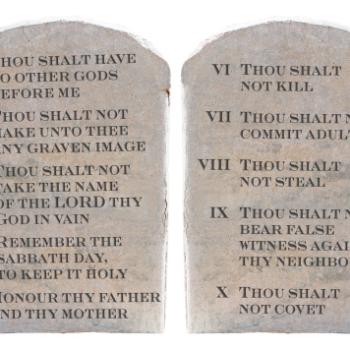YOU GOT TO FIGHT FIRE WITH FIRE. The U.S. doesn’t do it because of its cherished separation of church and state doctrine. That should change. The main weapon in the war against Islamic terrorism is not physical, but ideological. The U.S. should use it.
The radical imams know this and take much advantage of it. They preach hatred and violence, turning young Muslim men into violent jihadists, even suicide bombers. The Qur’an (4:75) states, “true believers fight for the cause of God.” These clerics add that if their disciples suffer martyrdom, they will immediately enter into a blessed afterlife in heaven that is far greater than this life, enjoying divine rewards such as multiple virgin women. So, many of these young men take up arms or suicide bombs to seek martyrdom, or they have little or no regard for continuing in this life.
The study of the History of Religions reveals that religions do not exist in isolation from each other; rather, they influence each other. Concerning the early formation of Islam, objective historians surely are right that it was influenced by Christianity and Judaism. By that time, the majority view of both of these religions concerning human nature and the afterlife was that the human soul is immortal and that upon physical death, these immortal souls enter into a disembodied, though conscious, afterlife either to enjoy bliss in heaven or suffer torment in hell. Christians generally believed in a subsequent resurrection of the body and divine judgment. Hellenistic Jews were divided on both ideas, though their ancestors had believed as the Christians did, as their Hebrew Bible makes clear. It states repeatedly that upon human death souls go down inside the earth to a place called “Sheol” (mentioned 67 times and similar to Hades) where there is no memory and no consciousness. And the Bible constantly describes souls during this intermediate state as being “asleep.” (Christians and Jews have argued as to whether this description should be understood literally or not.)
Islam likewise adopted a strong belief in resurrection and judgment, which are repeated in the Qur’an more than in the Bible. Early Islam also embraced belief in the immortality of the soul, as Christians and many Jews then did. But it was not always so.
Jewish New Testament scholar and historian Alan F. Segal wrote a classic book on this subject entitled Life After Death: A History of the Afterlife in Western Religion (Doubleday, 2004, 880 pp.). He states, “Apostolic Christianity at first wanted nothing to do with immortality of the soul” (p. 705). He says the same had been true of earlier Jews and then adds, “When Jews came into contact with Greece and Persia, everything changed” (p. 701). He means that most Hellenistic Jews then embraced belief in the immortality of the soul. Thus, Segal explains, and many historians and theologians affirm, that Jews and later Christians were influenced by Greek religio-philosophy, which generally proclaimed a dualism that included the immortality of the human soul.
Former U.S. Secretary of State, Madeleine Albright, in her book Mighty and the Almighty: Reflections on America, God, and World Affairs, admits that the U.S. in recent decades has suffered, and brought suffering on other nations, because its foreign policy largely ignored religious beliefs common in foreign countries. In doing so, she suggests that the U.S. change course.
I concur, suggest that they start with consideration of belief in an afterlife, and go a step further. During WWII, the U.S. sent radio waves of propaganda toward its enemies and flew airplanes over them that dropped leaflets with the same messages. Remember G.I. Jane? Those days were similar to our war on terrorism with Islamic Jihadists in that both of our enemies were motivated by religious/spiritual beliefs. The Japanese were taught that their Emperor Hirohito was divine, and the Germans treated Hitler, who experimented with the occult, as a messianic figure. But nowadays, the U.S. does nothing to oppose Islamic propaganda that sends young men to their deaths, and in the process kills a lot of innocent people they had regarded as their enemies. I suggest the U.S. sends out a message about afterlife which opposes that message of these Imams. It might raise legal issues; but it would only proclaim history, declaring that early Jews and Christians did not believe in the immortality of the soul and therefore did not believe that viewpoint was taught in their scriptures despite the New Testament’s 2 Corinthians 5.8 and Philippians 1.21-23. And for those who think they do, belief in the immortality of the soul makes resurrection less appealing.
I think such a message by the U.S. government–that it is questionable that there is any biblical evidence for conscious afterlife during the intermediate state between death and resurrection–would cause many young Muslim men to pause and rethink choosing to forfeit their lives. It could be a powerful weapon the U.S. and other nations could use their war on Islamic Terrorism.












